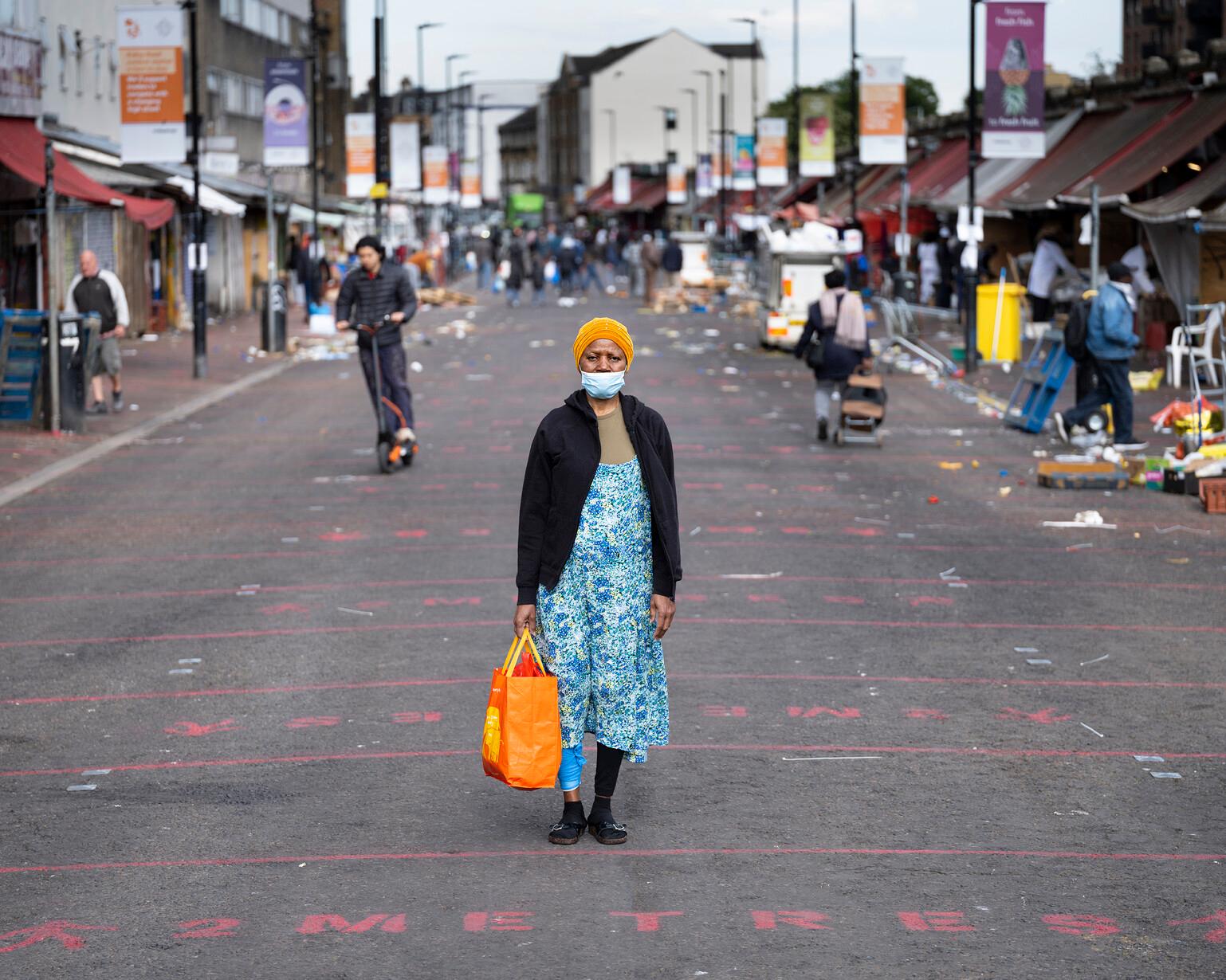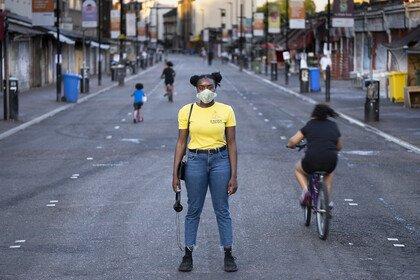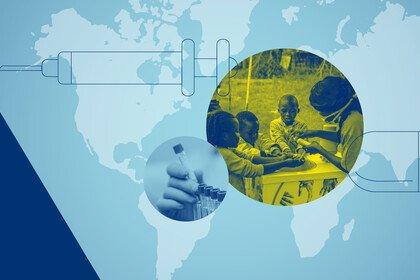Public trust in scientists rose during the Covid-19 pandemic
Insights from the Wellcome Global Monitor – the largest global survey of how people think and feel about science – found levels of trust in scientists have increased since 2018, placing it on par with doctors and nurses.

Gideon Mendel (assisted by Maria Quigley) / Wellcome Photography Prize 2021
During the Covid-19 pandemic, more than three-quarters of people globally said they trust science (80%) and scientists (77%) either ‘a lot’ or ‘some,’ according to the Wellcome Global Monitor published today.
Notably, people who said they trust in science and scientists ‘a lot,’ rose by nine percentage points since the 2018 survey – 41% and 43% respectively. This means those trusting in scientists ‘a lot’ is now on par with trust in doctors and nurses (45%). In every country surveyed, however, only a minority of people said that government leaders valued the expertise of scientists ‘a lot’.
Conducted by Gallup World Poll, the Wellcome Global Monitor asked more than 119,000 people in 113 countries and territories, aged 15 years and over about their views on science during the pandemic.
Carried out between August 2020 to February 2021, the survey captured insights during a time when cases were surging in many regions and the world was awaiting the results of vaccine trials. It offers an insightful snapshot of the impact of Covid-19 on people’s lives at a time when science was in the public eye like never before.
"The Covid-19 pandemic has thrust scientists into the spotlight, where they have provided information and guidance affecting the day-to-day lives of billions of people," said Lara Clements, Associate Director of Public Engagement and Campaigns at Wellcome.
"In both 2018 and 2020, we saw a link between people’s perceived knowledge of science and their trust in science. As the pandemic has brought science into more people’s lives, it is perhaps no surprise that people’s trust in science and scientists has risen so much."
Trust in science
People’s trust in a number of institutions all rose slightly between 2018 and 2020, including in doctors and nurses, charity workers, journalists and national governments, while their trust in people in their neighbourhood declined slightly. Other key findings include:
- Doctors and nurses were the most trusted institution globally. In 2020, 45% said they had ‘a lot’ of trust in them and 43% said they had ‘a lot’ of trust in scientists.
- People in Australia and New Zealand trusted scientists ‘a lot’ the most (62%) and Sub-Saharan Africa, the least (19%). In East Asia trust rose by the largest margin from 2018 (33%) to 2020 (49%).
- Trust in science rose in people who said they have ‘some’ science knowledge in 2020 (48%) vs 2018 (39%) and those who knew ‘not much’ or ‘nothing at all about science’ in 2020 (33%) vs 2018 (25%).
- People’s belief that their government valued scientists’ opinions and expertise was most prevalent where overall confidence in the government itself was highest.
"Trust has always been intrinsic to public health and success can only be achieved when communities are open to and readily understand the science," said Lara Clements. "This vast dataset can offer huge potential to learn how the public relate to science, particularly during this crucial stage of the pandemic."
Governments have a vital role in implementing scientific recommendations and the Wellcome Global Monitor asked people’s view on whether their governments value scientific advice. Findings included:
- Globally, 25% said government leaders placed ‘a lot’ of value on the opinions and expertise of scientists.
- People in East Asia were most likely to believe leaders placed ‘a lot’ of value on the opinions of scientists (39%). Eastern Europe and Latin America were the most sceptical, with 47% in both regions saying their leaders place ‘not much’ or no value at all on scientists opinions.
- Doctors and nurses were deemed by people as most likely to base decisions about Covid-19 on scientific advice (63%) followed by the World Health Organization (48%) then national governments (41%).
Global co-operation
"This survey highlights a clear willingness and generosity of people in mainly high-income countries to prevent and cure diseases wherever they occur," said Beth Thompson, Interim Chief Strategy Officer at Wellcome. "However, since this survey was conducted, stark inequalities in the response to the Covid-19 pandemic have unforgivably left low- and middle-income countries further behind particularly with access to vaccines."
The pandemic has heightened the need for strong geopolitical relations, resilient health infrastructure and pandemic preparedness. The Wellcome Global Monitor explored people’s opinions on government spending to prevent and cure diseases.
- Generally, people from high-income regions, where there is traditionally a focus on international aid, were more likely to say their government should spend money to help other countries prevent and cure diseases wherever they occur. Three-quarters of people in Western Europe (76%) strongly and somewhat agreed with this approach.
- People from traditional middle-income countries, where focus is often on domestic priorities, were more likely to back government spending on preventing and curing diseases only if they pose a risk to their country.
"Although this report provides a snapshot of views in 2020, prior to successful vaccines or licensed treatments, it’s vital that we can listen to – and understand – people’s views," said Beth Thompson. "These can help design more sustainable, collaborative and equitable solutions to end the pandemic and tackle other urgent global health challenges."
Wellcome has been supporting global research and development to help the world overcome Covid-19. We’re calling for urgent international action to ensure lifesaving tests, treatments and vaccines reach those most in need around the world.
Wellcome Global Monitor 2020: How Covid-19 affected people’s lives and their views about science is available to download, alongside the full dataset, on Wellcome’s website. This report follows the The role of science in mental health: Insights from the Wellcome Global Monitor report published in October 2020.

